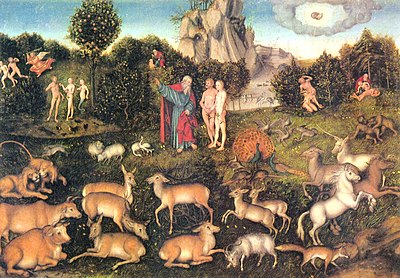God and Religious Toleration
Jump to navigation
Jump to search
Please share your thoughts about whether to keep this book at Wikibooks. Maintain this notice so this book can receive a fair review and people have time to boldly address reasonable concerns through concrete improvements. Remove or replace this notice after discussion concludes and a community decision is made. Please also consider notifying the primary contributors on their discussion page with
|

Contents
[edit | edit source]- Introduction
- What is God
- The basics about God
- The proof of God
- Afterlife
- Christianity
- Buddhism
- Hinduism
- Islam
- Paradise Meditation